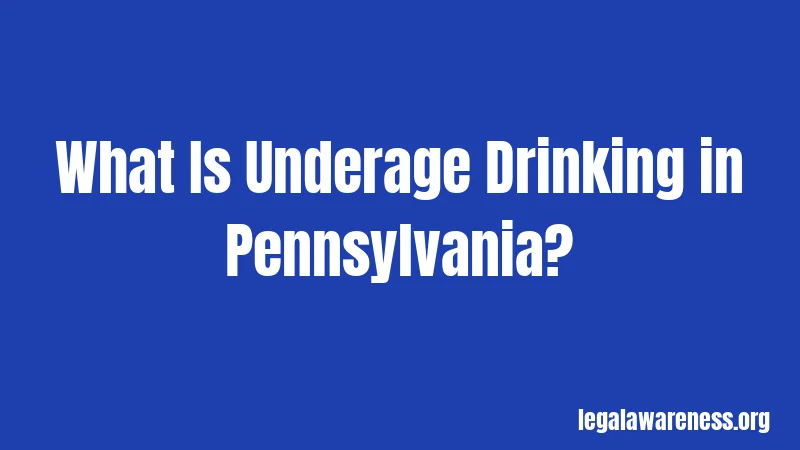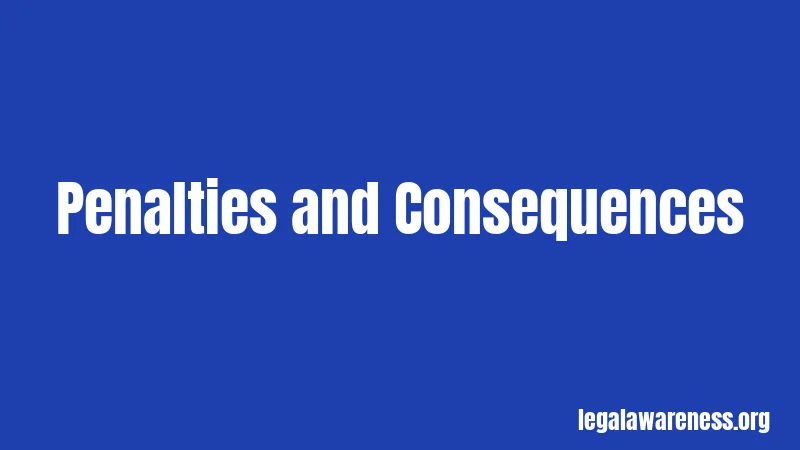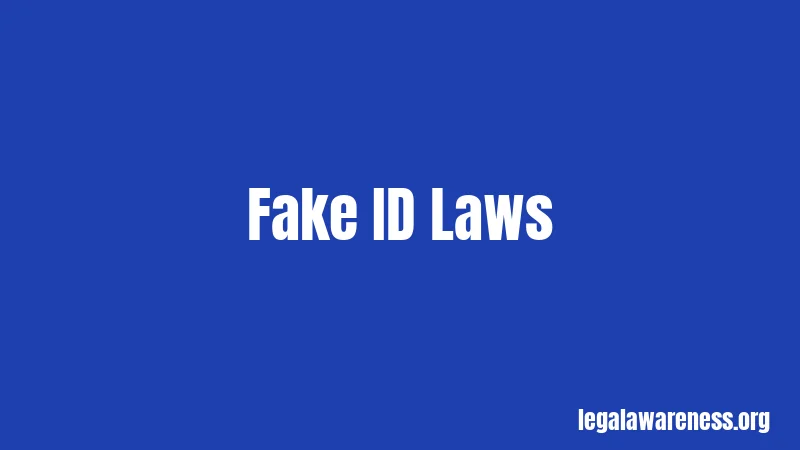Minor Drinking Laws in Pennsylvania (2026): What You Need to Know
Pennsylvania has some of the strictest minor drinking laws in the United States. These laws can seriously impact your future if you’re caught breaking them. This guide explains everything you need to know about underage drinking laws in Pennsylvania.
Understanding these laws is important for teens, college students, and parents. The penalties can affect your driving privileges, college admission, and job opportunities for years to come.
What Is Underage Drinking in Pennsylvania?

In Pennsylvania, underage drinking means any person under 21 years old who drinks alcohol. The law is very clear about this. It doesn’t matter if you’re 20 years old or if your parents gave you permission.
The law covers more than just drinking alcohol. It also makes it illegal for anyone under 21 to buy, possess, or transport alcoholic beverages. This includes beer, wine, liquor, and even some “non-alcoholic” drinks that contain 0.5% alcohol.
You can be charged with underage drinking even if you never took a sip. Simply having alcohol in your possession is enough to get you in trouble with the law.
Basic Minor Drinking Laws
What’s Illegal for People Under 21
Pennsylvania law makes it illegal for anyone under 21 to do these things:
- Purchase or try to purchase any alcoholic beverage
- Drink any alcoholic beverage
- Possess any alcoholic beverage
- Transport any alcoholic beverage
The law applies to all types of alcohol. This includes beer, wine, hard liquor, and malt beverages. Even some drinks labeled as “non-alcoholic” like O’Doul’s contain 0.5% alcohol and count under this law.
Where the Law Applies
These laws apply everywhere in Pennsylvania. It doesn’t matter if you were drinking in another state. If you’re charged with underage drinking in Pennsylvania, you can’t use the defense that you drank the alcohol somewhere else.
The law applies on private property too. You can’t legally drink at house parties, in dorm rooms, or even with your parents’ permission.
Penalties and Consequences

Fines for Underage Drinking
The penalties for underage drinking get worse with each offense:
First offense: Up to $500 fine Second offense: Up to $1,000 fine
Each additional offense: Up to $1,000 fine
These are just the basic fines. You may face additional costs like court fees and program fees that can add hundreds more dollars.
License Suspension
One of the most serious consequences is losing your driver’s license. Pennsylvania automatically suspends your license for underage drinking:
First conviction: 90-day license suspension Second conviction: 1-year license suspension
Third conviction: 2-year license suspension
You lose your license even if you weren’t driving when you got caught. This happens for any underage drinking conviction.
Criminal Record
Underage drinking creates a permanent criminal record. This can hurt your chances of getting into college, getting scholarships, or finding a job. Many employers check criminal backgrounds before hiring.
Some colleges also check criminal records during admission. An underage drinking conviction could affect your acceptance or financial aid.
Zero Tolerance Driving Laws
BAC Limits for Drivers Under 21
Pennsylvania has a “Zero Tolerance” policy for drivers under 21. While drivers 21 and older can legally drive with a blood alcohol content (BAC) up to 0.08%, drivers under 21 face much stricter rules.
If you’re under 21, you can be charged with DUI if your BAC is 0.02% or higher. This is a very small amount of alcohol. Even one drink could put you over this limit.
Penalties for Underage DUI
The penalties for underage DUI are severe:
First offense:
- 12-18 month license suspension
- 48 hours to 6 months in jail
- $500 to $5,000 fine
- Up to 150 hours community service
Second offense:
- 12-month license suspension
- 30 days to 6 months in jail
- $750 to $5,000 fine
- Must install ignition interlock device for 1 year
Third offense:
- 18-month license suspension
- 90 days to 5 years in jail
- $1,500 to $10,000 fine
Fake ID Laws

Using a Fake ID
Using a fake ID to buy alcohol is a separate crime in Pennsylvania. This includes using someone else’s ID or an altered ID that shows a false age.
First offense for fake ID:
- Up to 90 days in jail
- Up to $300 fine
- 90-day license suspension
Second offense:
- Up to 1 year in jail
- Up to $500 fine
- 1-year license suspension
Making or Selling Fake IDs
Making or selling fake IDs is even more serious. This is charged as a second-degree misdemeanor with penalties of:
- Up to 2 years in prison
- $1,000 to $5,000 fine for first offense
- Minimum $2,500 fine for repeat offenses
Medical Amnesty Law
When You’re Protected
Pennsylvania has a Medical Amnesty Law that protects people who call for help during alcohol emergencies. This law gives you immunity from underage drinking charges if you meet specific requirements.
To qualify for protection, you must:
- Call 911 or emergency services because someone needs medical help due to alcohol
- Reasonably believe you’re the first person to call for help
- Give your real name to the operator
- Stay with the person who needs help until emergency workers arrive
What’s Not Protected
The Medical Amnesty Law only protects you from underage drinking charges. You can still be charged with other crimes like:
- Public drunkenness
- Drug possession
- Providing alcohol to minors
- DUI
Special Circumstances
Religious Exceptions
Pennsylvania law allows very limited exceptions for religious ceremonies. Minors may consume alcohol as part of certain religious practices. However, this exception is very narrow and must be part of legitimate religious activities.
Employment Exceptions
People under 21 can work in places that serve alcohol under certain conditions. A 17-year-old high school graduate may be treated as 18 years old for employment purposes at licensed establishments.
However, working in these places doesn’t give you the right to drink alcohol. The underage drinking laws still apply to employees.
No Parental Exception
Unlike some states, Pennsylvania doesn’t allow parents to give alcohol to their minor children. Even with parental permission, it’s still illegal for anyone under 21 to drink alcohol.
How to Stay Out of Trouble
Know What Contains Alcohol
Some drinks you might not expect contain alcohol:
- Certain cough syrups and medicines
- “Non-alcoholic” beer (often contains 0.5% alcohol)
- Some energy drinks
- Cooking wine and extracts
Always check labels before consuming anything that might contain alcohol.
Avoid Risky Situations
The best way to avoid underage drinking charges is to stay away from situations where alcohol is present:
- Don’t go to parties where alcohol is being served
- Be careful about who you spend time with
- Don’t let others pressure you into drinking
- Have a plan for getting home safely from social events
Know Your Rights
If you’re stopped by police:
- You have the right to remain silent
- You don’t have to take field sobriety tests (but refusing has consequences)
- You can ask for a lawyer
- Be respectful and cooperative, but don’t admit to drinking
Getting Help After Charges
Pre-Adjudication Programs
Many first-time offenders can enter special programs that help avoid conviction. These programs might include:
- Community service
- Alcohol education classes
- Counseling sessions
- Court supervision
If you complete the program successfully, the charges are usually dismissed.
Expungement Options
You may be able to get your record cleared after turning 21. This process is called expungement. It removes the charges from your criminal record completely.
However, expungement isn’t automatic. You usually need to file paperwork with the court and may need a lawyer’s help.
Legal Representation
If you’re charged with underage drinking, consider getting a lawyer. An experienced attorney can:
- Help you understand your options
- Negotiate with prosecutors
- Get you into diversion programs
- Protect your rights in court
- Help with expungement later
Frequently Asked Questions
Can I be charged with underage drinking if I wasn’t actually drinking?
Yes. Pennsylvania law makes it illegal to possess or transport alcohol if you’re under 21. You can be charged even if you never drank any alcohol.
What happens if I refuse a breathalyzer test?
If you’re under 21 and refuse a breathalyzer test, you automatically lose your license for one year. This happens even if you’re not convicted of any other charges.
Do my parents have to be notified if I’m charged?
Yes. Pennsylvania law requires police to notify parents or guardians when a minor is charged with underage drinking. This applies to anyone under 21.
Can I get a work license if my license is suspended?
You may be able to get a restricted license for work or school purposes. However, this depends on your specific situation and the judge’s decision.
Will an underage drinking charge affect my college applications?
Many colleges ask about criminal history on applications. An underage drinking conviction could affect your admission chances or financial aid eligibility.
Final Thoughts
Pennsylvania’s minor drinking laws are strict and carry serious consequences. A single mistake can affect your driving privileges, college plans, and job opportunities for years. The best approach is to avoid alcohol completely until you turn 21.
If you do face charges, don’t try to handle it alone. Get help from a qualified attorney who understands Pennsylvania law. Many first-time offenders can avoid conviction through special programs, but you need to act quickly to protect your rights.
Remember that these laws exist to protect young people from the dangers of alcohol. While they may seem harsh, following them helps keep you and others safe.
References
- 18 Pennsylvania Consolidated Statutes § 6308 – Purchase, consumption, possession or transportation of liquor
- Pennsylvania Alcohol Policy Information System
- Pennsylvania Zero Tolerance Law Information
- Know When Know How – Pennsylvania Underage Drinking Laws
- Pennsylvania Department of Transportation – DUI Laws
